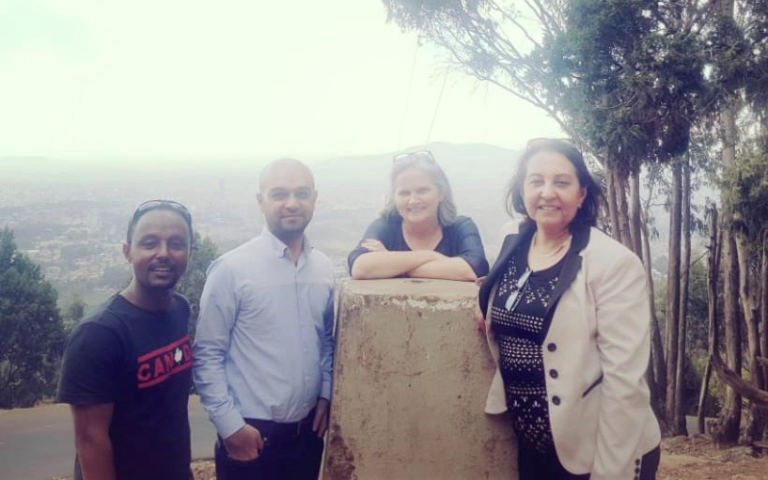UCL collaborates with Toronto to address the challenge of 'brain drain' among doctors
The project looks at international collaboration in medical education, focusing in particular on the loss of highly trained doctors to different countries

9 May 2019
In 2017, Dr Ahmed Rashid and Professor Deborah Gill (UCL Medical School Education Consultancy) received funding through the UCL-Toronto Strategic Partner Funds. This joint seed-funding scheme has been designed to encourage academic collaboration between the two institutions.
Dr Rashid and Professor Gill are working with the University of Toronto on a multi-country collaboration to look at different approaches to international collaboration in medical education. The project’s wider goal is to address the problem of 'brain drain' among doctors in developing countries, the phrase given to the emigration of highly trained or qualified people such as doctors from a particular country.
Globally engaged
The University of Toronto’s Wilson Centre specialises in medical education research, working with institutions in other countries to help promote medical education. Similarly, UCL’s Medical School has a unit which engages in projects overseas – including in China, Thailand, Saudi Arabia and Dubai – working with partner universities and medical schools to help support medical education programmes.
A comparative approach
“Given that our activities are similar, we thought it would be interesting to take a comparative approach and look across our projects to understand our different approaches and their consequences”, explains Dr Rashid. He highlights the fact that there is currently very little published research in this area.
“Cynthia Whitehead, Director of the Wilson Centre, is an academic in medical education and she's also a family doctor, as am I, so our clinical backgrounds align. She has a track record of educational research with a global focus, while Brian Hodges at the University of Toronto is a world leading academic in medical education, particularly in the areas of professionalism and globalisation.”
The project will involve the two teams observing each other’s work overseas, bringing in UCL’s collaboration with New Giza University in Egypt and the University of Toronto’s collaboration with Addis Adaba University in Ethiopia. The researchers will take a critical look at how their collaborations in Egypt and Ethiopia work.
Addressing the problem of ‘brain drain’
Dr Rashid says that the phenomenon known as ‘brain drain’ is a particular problem in healthcare, and the project will seek to address this.
“There are huge swathes of doctors leaving less economically developed countries to come and work in western countries and part of the reason for that is because the education system and the infrastructure within that country is not really very well developed and there's no incentive for them to stay in that country.”
The UCL and University of Toronto projects plan to support the development of medical education approaches and co-develop with their host institutions a programme to train medical educators within their countries.
He adds: “What we’re really hoping to get from this work is a sense of the optimal ways to actually produce an outcome for an institution, in terms of their educational provision, which is of that country and for that country.
I think that will provide the best possible way for them to keep their doctors in that country where they're so desperately needed, rather than have doctors who will leave.”
Creating sustainability
“We both have a reflective approach to this type of work”, says Dr Rashid, “in terms of thinking carefully about what the impact of our work is on sustainability.” As well as recognising the differences of the medical systems in the countries themselves, he explains that it is important to take into account the differences in educational approaches, and other socio-cultural factors.
“I think both of our departments have a broad outlook in thinking about the work that we’re doing and are quite careful not to impose certain assumptions on the organisations that we work with”, he says.
He adds that the work is often about improving the leadership skills within institutions so that programmes continue to run when the medical education project ends. He emphasises that it is important to focus on co-producing and contextualising in a reflective way.
“It’s about saying what's right for you, in your country, in your circumstances, for your students.”
Next steps
The project will culminate in a two-day workshop in London for academics from all four universities to share and synthesise findings this November.
“We will basically unpick what we've seen across the two visits, and we’re hoping to write this up to share with the global medical education community.”
 Close
Close

